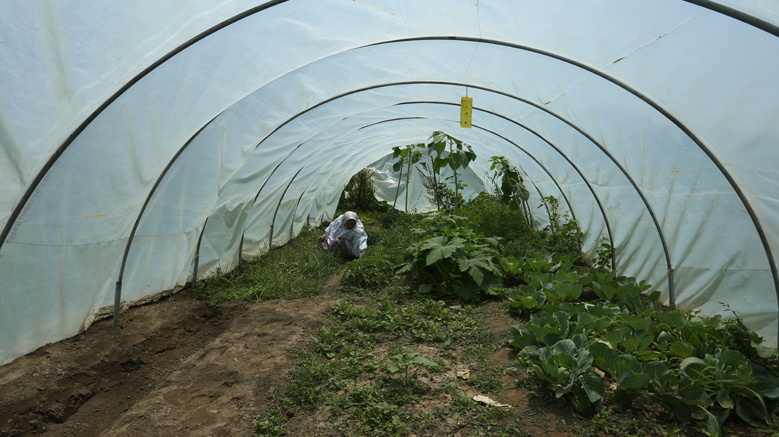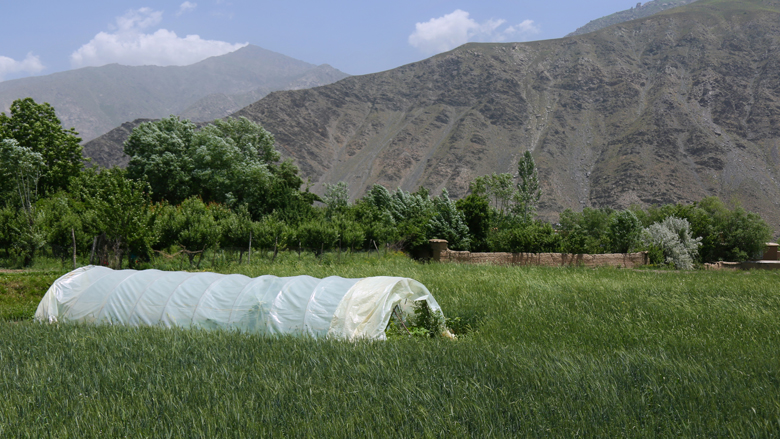ROKHA DISTRICT, Panjshir Province – For the past two hours, Mina has been working tirelessly in her field. She is weeding among the vegetables and slowly moving forward. .
Mina lives in Panjshir Province. Eight years ago, her husband died of a serious illness and her life grew harder—she had no income and there was no one who could support her and her family of five.
Mina had no hope for the future, but after a few months, she decided to rent her neighbors’ farmland and cultivate vegetables to support her family. Though this enabled her to survive, Mina’s income was low as she had no experience in cultivation, irrigation, or harvesting. “I didn’t have enough knowledge, I just planted the seeds, irrigated, and reaped the crops,” she says in a soft voice.
of the National Horticulture and Livestock Project (NHLP). She received tools and equipment, such as a wheelbarrow, spade, and harvest baskets, as well as regular training on modern cultivation, irrigation, harvesting, and marketing in addition to seeds from NHLP.
NHLP’s assistance helped her modernize her cultivation methods and produce better quality vegetables in larger quantities. “I sell my produce to locals and at the nearest market to our village, and then I spend my earnings on my family’s needs,” says Mina. She now cultivates zucchinis, cucumbers, tomatoes, okra, onions, coriander, among other vegetables, whereas she grew only a few varieties before.
Between 2016-201. The greenhouses allow Mina and other village women to grow vegetables even during the winter. This expanded growing season provides Mina with income during the three months of the year when she did not previously have income. “Now, we have one more season for cultivation,” says Shir, who helps Mina occasionally. “Mostly we plant vegetables like leek, onion, cress, and celery during winter and all the villagers buy their vegetables from us.”
Assistance through NHLP is not just helping Mina improve her production during the regular growing season, it is helping her be more strategic about selling her products in a way that maximizes value. During the summer when the villagers grow vegetabs learned different ways of making torshis and has received equipment from NHLP, enabling her to earn more from her vegetable sales throughout the year.



